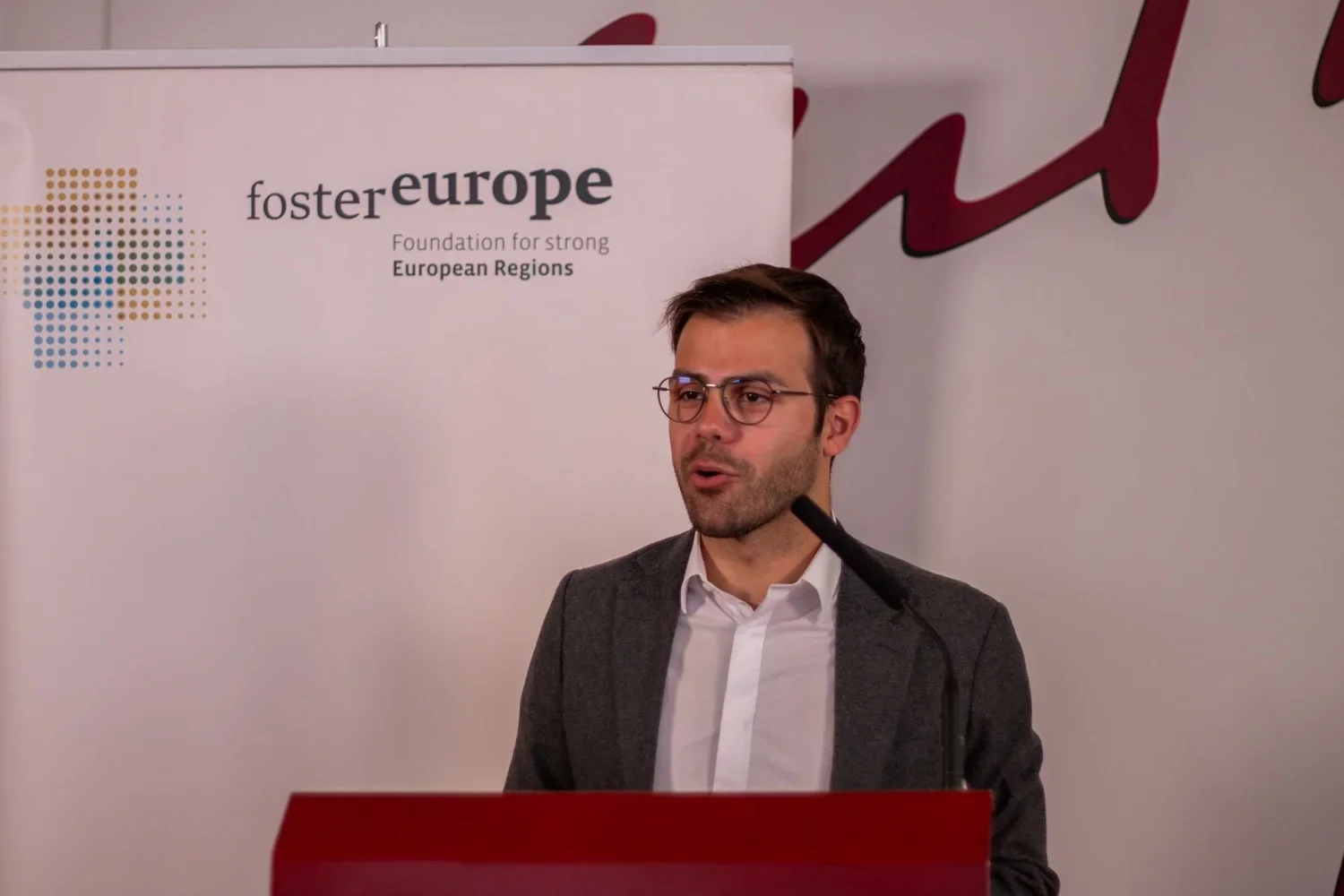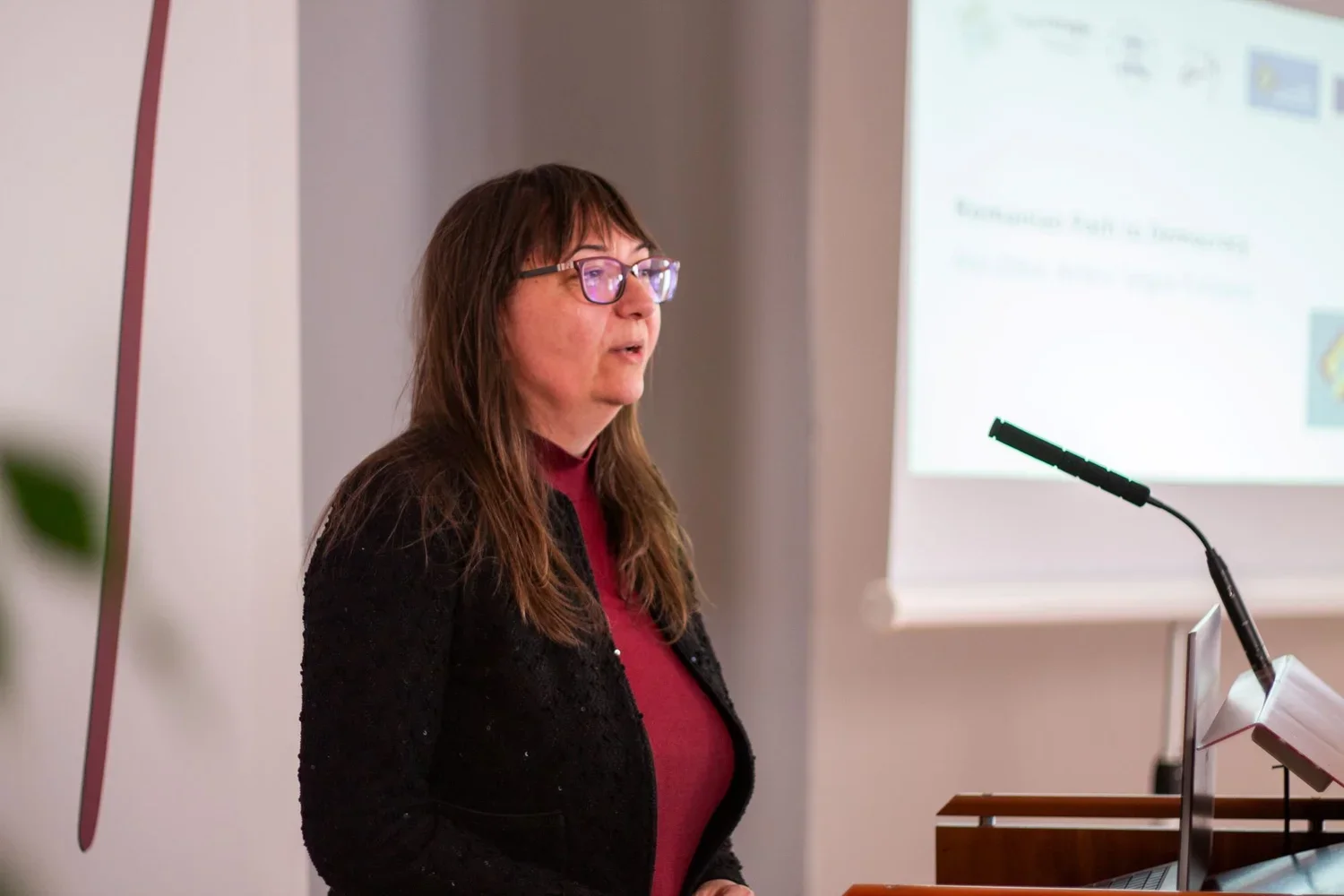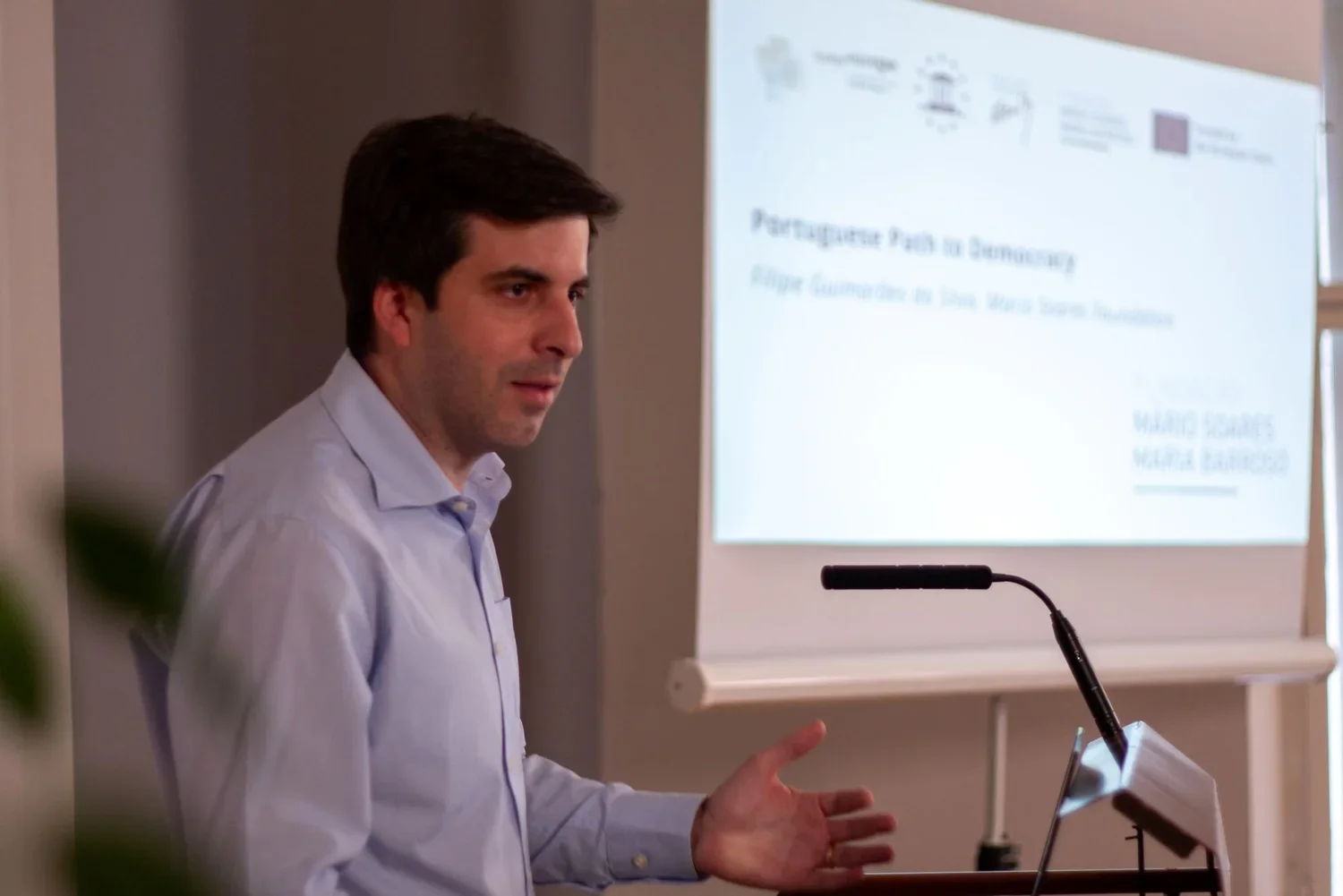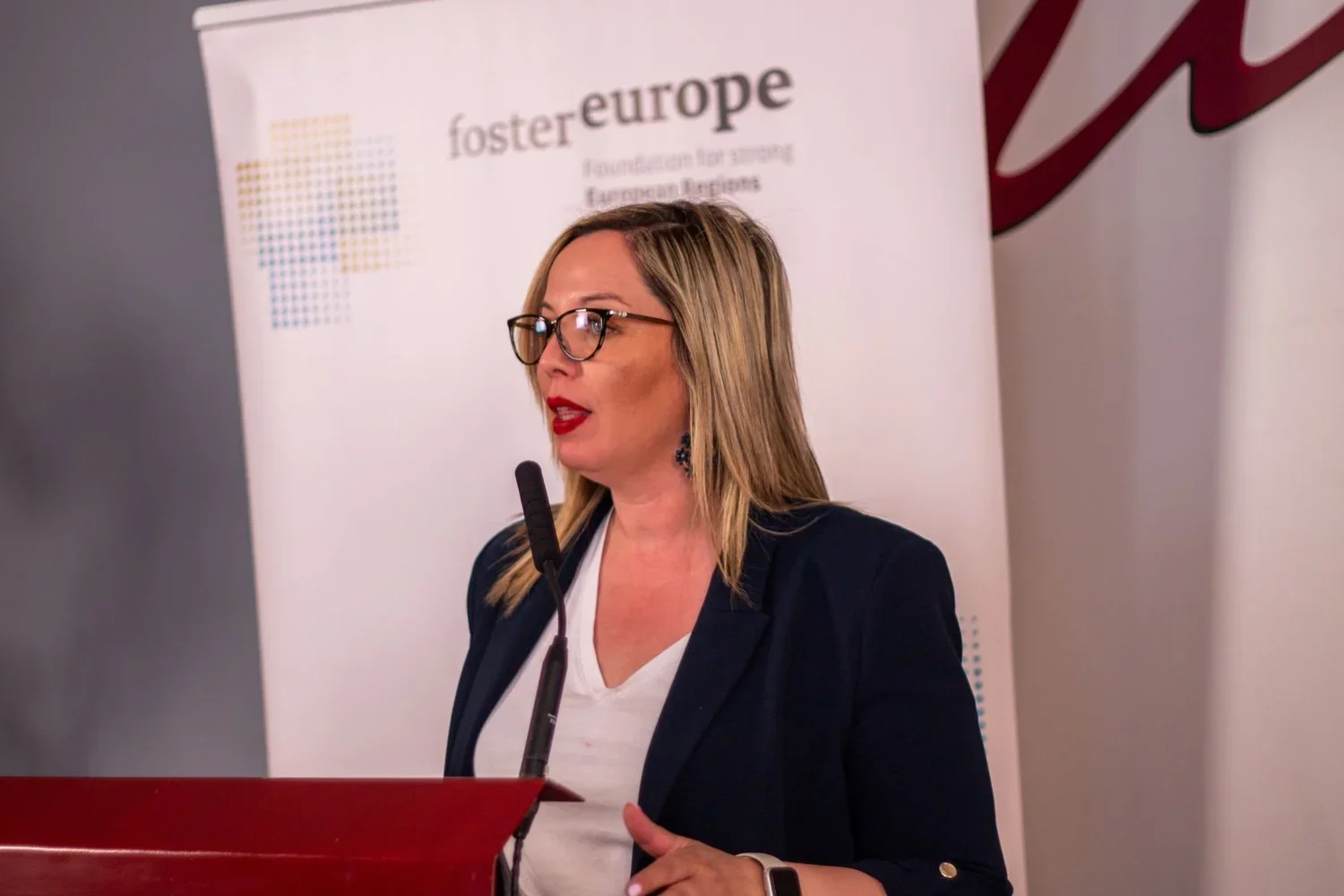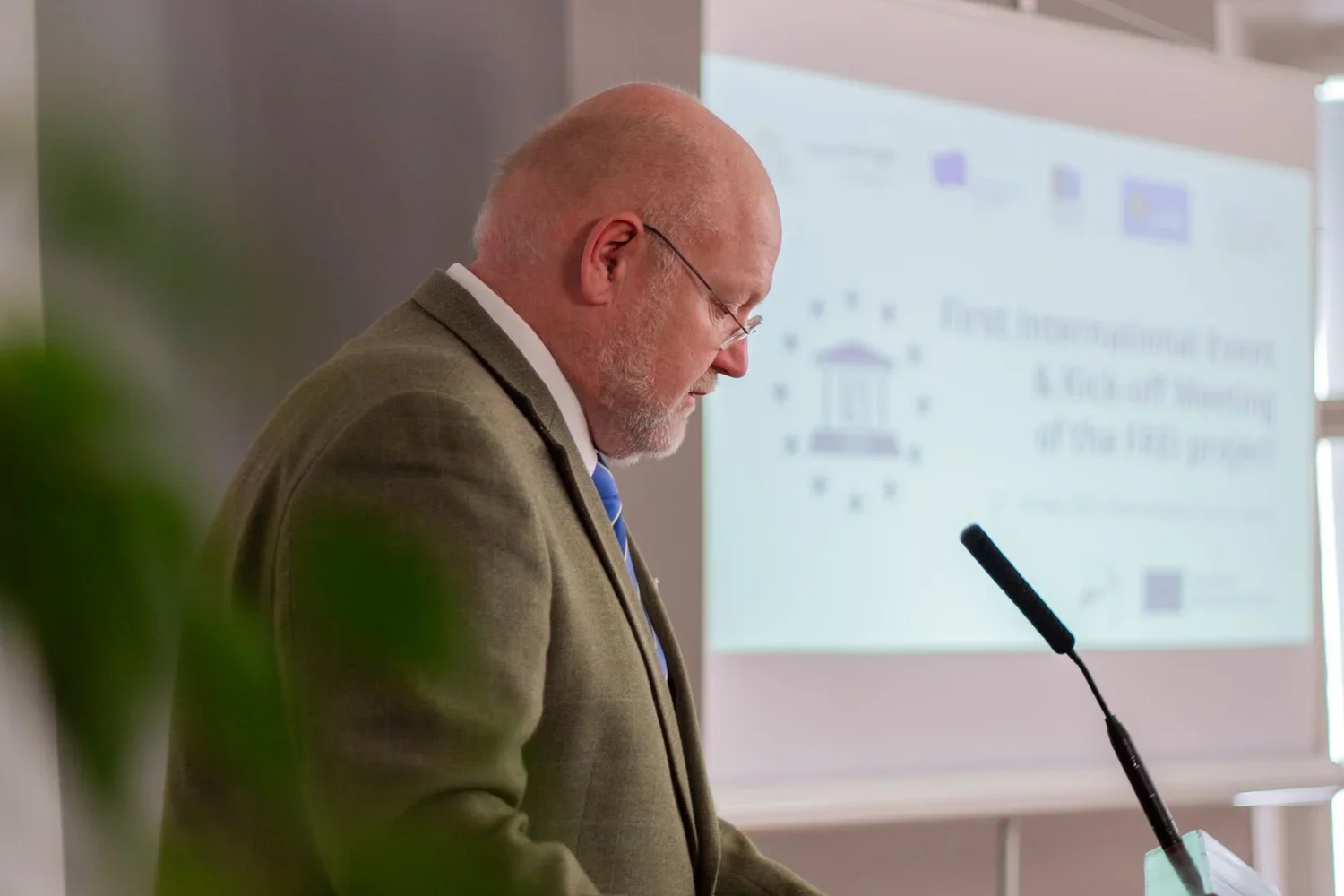From Resistance to European Integration
A guide book - to hidden stories and a new path of didactics
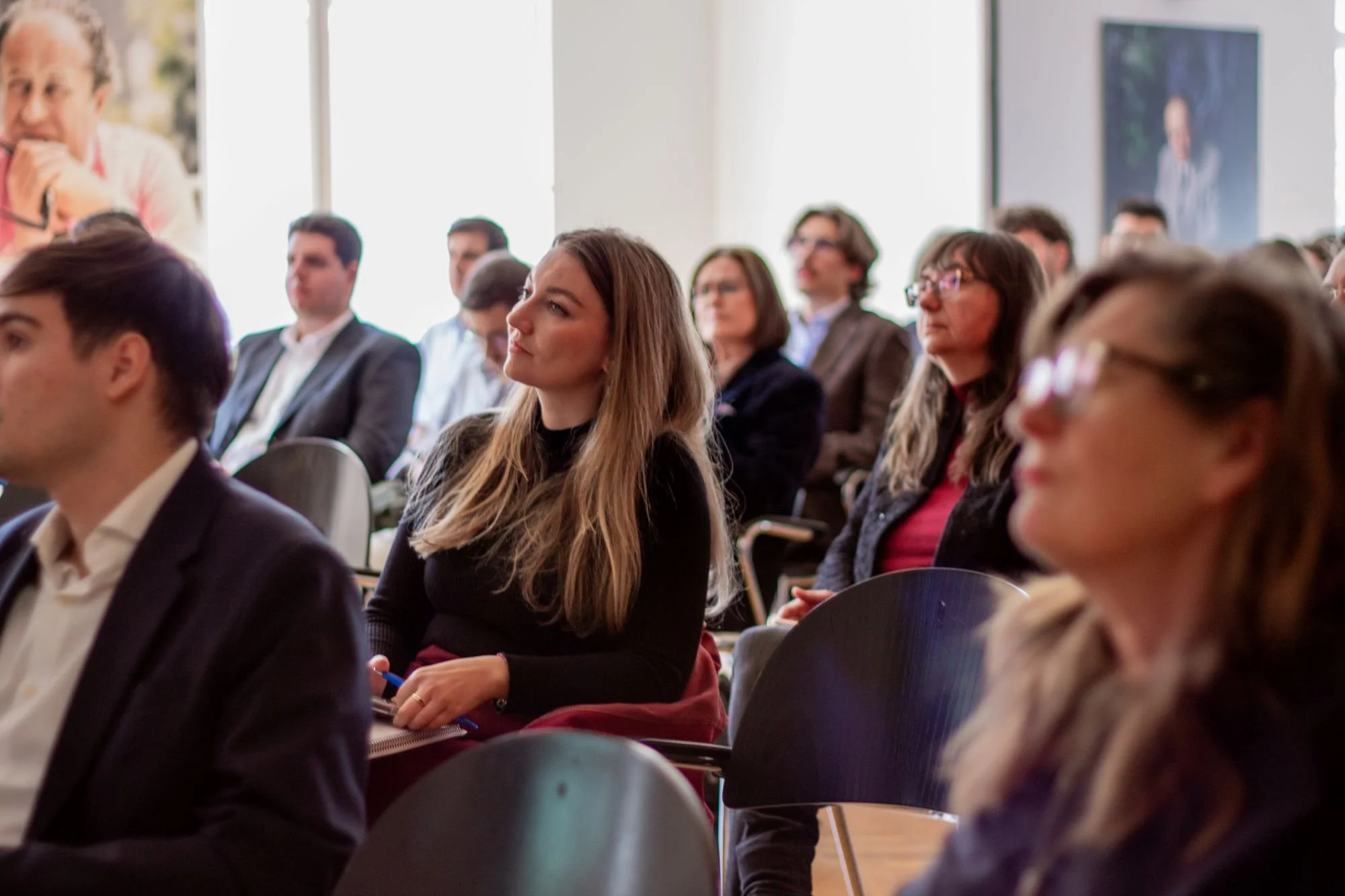
Quick navigation
Interactive map
-
This map accompanies the Guidebook developed within the framework of the EU-funded FREI Project. It serves as a visual and geographical overview of selected remembrance sites across the countries involved in the project—each representing a crucial chapter in the country’s post-war history.
Through these sites, the country’s urban landscape reveals layers of collective memory, reflection, and reconciliation. They mark the country’s ongoing commitment to confronting its past, preserving the stories of those affected by the atrocities of World War II and fostering awareness among future generations.
The map provides geographical coordinates and brief contextual information for each location, allowing all interested to explore how country’s culture of remembrance has evolved across its diverse neighborhoods. Together, these sites form a living network of memory—an invitation to engage with history, empathy, and responsibility.
Local paths
Disinformation and Fake news dissemination in civic society public debate from Fascit Propaganda to nowadays risks.
-
1: From Resistance to European Integration, evaluation on public knoledge and gap analysys at intergenerational level
2: Role of Propaganda and information manipulation between yesterday regime and today democratic context
3: Future prospectives: risks for Eu integration and democratic societies, EU integration as rule of law and democracy guarantee -
From Dictatorship to Democracy: The Educational Journey of Roma Youth in Romania
-
The Romanian path of the FREI project explores how the Roma community navigated communist educational policies, examines the contrast between formal inclusion and real exclusion under socialism, captures the ongoing struggle of Roma youth for equality in democratic Romania, and emphasizes both the progress and challenges in achieving genuine educational inclusion today.
-
Asociatia “Liga Scriitorilor” Filiala Timisoara Banat (LSFTB) is a Romanian NGO, Erasmus-accredited in adult education, and a cultural organization with extensive experience in organizing trainings and cultural events focused on developing artistic skills, with a strong intergenerational focus.
Since 2012, LSFTB has been committed to public education, promoting lifelong learning, and actively participating in numerous European projects. Through workshops, trainings, and cultural events, LSFTB creates inclusive spaces where creativity thrives and communities come together.
Unarchiving democracy: Youth, Post-colonial memory and the portuguese democratic path
-
This path brings together the historical memory of Portugal’s democratic transition, the country’s specific experience of a peaceful revolution and decolonisation, and contemporary challenges such as structural racism, post-colonial inequalities and the rise of the far right.
Through ‘unarchiving’ - working with both established and silenced histories through archives, memory practices and non-formal education - participants reflect on how the past shapes democratic awareness today.
-
The Mário Soares and Maria Barroso Foundation is a non-profit, public utility institution in Portugal, established in 1991, dedicated to promoting a democratic and civic culture inspired by the lives of Mário Soares and Maria Barroso, preserving Portuguese heritage, and fostering scientific knowledge through cultural events, educational programs, and access to its archives and museum.
The Foundation houses one of the most important historical archives in Portugal. It contains millions of documents, photographs, personal collections, letters, newspapers and audiovisual materials that document the country’s transition from dictatorship to democracy, the decolonisation process, and the path to European integration.
Path of Memory, Democracy and Migration
-
This path explores historical and contemporary narratives related to resistance, human rights and migration. Through visits to selected memory sites and places connected to stories of displacement and social inclusion, participants gain insight into key aspects of Greek history and contemporary social realities, reflected through themes of memory, democracy and migration. The path encourages a deeper understanding of how collective memory shapes modern European democratic identity.
-
European Expression is an independent, non-profit Civil Society Organisation founded in 1989, active in promoting the European idea, democratic values and citizens’ rights. Since 2017, it has implemented programmes supporting unaccompanied minors and young refugees/migrants by offering housing, care and integration services. In addition, it operates the psychosocial rehabilitation unit, providing support to adults with psychosocial needs.
FREI Austrian Local Path: (Re)-Building Democracy in the Heart of Europe. Austria’s path from NS-rule to EU Membership
-
The Austrian local path discusses the history of the II. Republic from the liberation from NS-rule to Democracy, Human rights, and European Integration. Next to this the current status of democracy in Austria will be discussed with youth and younger generation. This will include untold story and debates with former decision makers.
-
The Foster Europe is a private, non-profit, and independent foundation based in Eisenstadt, Austria. In line with its mission, it promotes discourse on federalism, decentralization, and regional development in Europe, with a particular focus on the Danube region in Europe. In this context, the foundation strengthens organized civil society, advances structural participation, and is also active in the field of political education, including through its engagement with the EU Strategy for the Danube Region (EUSDR).
Introduction
Europe has had an incredible career after the end of the Second World War. This success was visible in a decade long period of economic growth, a growing wealth among lower social groups, the equality for women, the rule of human rights, pluralistic, liberal democratic societies, and a concept of overcoming nationalism in forms of areas economics and trade, with the high end of the ever-closer European Union.[1]
Out of 27 EU member states all but one (Sweden) have been under totalitarian regimes, some of them even endured multiple authoritarians, and/or totalitarian regimes like Poland or Rumania others suffered foreign occupation like Denmark or the Baltic states. While this general statement is undoubtedly true, the great diversity of different regimes such as National Socialism, Italian Fascism, Stalinism, or the fascist regimes of the Iberian Peninsula or Greece should not be equated with one another.
This Guidebook is based on the EU-funded FREI[2] project. During the project's duration and beyond, the Guidebook will document the methodology, source material of various media, and key findings from the project's progress.
FREI is emphasising the term and model of liberal, pluralistic democracy, as we notice a growing intent in Europe to re-interpret democracy to a mere majority-rule system based on elections and referenda, quite often not fair, free or transparent. It would be beyond the scope of FREI to go deeper in an analysis here, but we just hint to the dead of democracy in the Russian Federation, and the steady process of hollowing out rules and practices liberal, pluralistic democracy within and outside the EU. The cases of Hungary with its illiberal model and Serbia as EU-candidate country in the heart of the continent are among the most alarming.
The progress of the project and the documentation presented here also document the close nexus between human rights, the rule of law, and democracy on the one hand, peace, and welfare of nations, and European integration on the other.
The current status of the European Union[4] as well as of the concept of liberal, pluralistic democracy and been portrait as in danger or even on retreat against new, most rights authoritarian trends[5]. Most recently our societal oder has been described as “in transit”[6]. While the entire concept of “the West” has been negated.[7]
We have to state that the Guidebook is not and was not intended to be a scientific work. It is a hybrid form of work-in-progress-report, a guide to applying new methodologies and didactics in (school) knowledge transfer and an offer of very eloquent, previously less noticed or partially forgotten sources and narratives in the context of the project subject.
The Guidebooks aims to document the strengths and simultaneous vulnerabilities of our liberal, pluralistic democracies and to discuss strategies for strengthening this form of state organization, especially for and with young people and young adults.
None of the national democracies at focus of FREI has emerged without considerable, often brutal and warlike resistance. Freedom, human rights, and democracy must always be won against strong, deeply rooted forces within societies. In extreme cases such as Germany, Italy, or Austria, it was even the complete military defeat of the totalitarian systems and a controlling occupation that made the reconstruction[3] of democracy possible.
-
While European (and US) democracies have clearly shown weaknesses and negative trends in perception of its citoyens and authoritarian concepts have been on the rise throughout the “West”, FREI does not abide in lamenting the decline of democracy or the European idea based on it.
What is interpreted as a weakness in the current debate about liberal, pluralist democracy is at the same time one of its greatest strengths. If it initially appears paradoxically, a more precise analysis of the historical development shows the tremendous radiance of democracy for all those living without freedom. It is equal opportunities, fundamental rights, rule of law, freedom of the individual and therefore of the sciences and arts that reveal the enormous potential of liberal democracies.
How important the freedoms and rights fought for 80, 60, or 40 years ago are today is brilliantly demonstrated by Alexand(e)r Baunov’s recent study[8]. Alexander Baunov talks about how the dictatorships of these three countries tried to prolong their existence and ended, about the differences and similarities of this transition as a result of the peaceful transformation in Spain, the revolutionary events in Portugal and the military adventure in Greece, and about people , thanks to or in spite of which this transition took place. On the example of the fall of the autocracies in Spain, Portugal and Greece, of which Portugal and Greece are subject of our work at FREI, Baunov convincingly demonstrates the potent of the democratic concept. In his study he sees signs of possible influence on the current situation of Russia and a possible way out for the oppressed Russian population. Democracy today does not necessarily have to be described as dying and increasingly meaningless.
FREI demonstrates the history of building rule of law, human rights, liberal democratic democracy and membership in the European Union in their historical sequence for Italy, Austria, Greece, Portugal and Romania. It shows the diversity of systems of oppression and disenfranchisement. It evokes the diversity of forms of resistance and the transitions from dictatorship to freedom and growing democracy. It also documents the uncertainties associated with the change. Finally, the project demonstrates that democracy was built slowly, by many, and against resistance over a long period of time. It also shows how important the engagement of external forces was for the positive outcome of the transition processes in all of the analysed cases.
The guidebook thus provides support for understanding democracies in Europe. It also demonstrates the unity in diversity that characterizes the European Union today. Last but not least, the Guidebook, like the entire FREI project, provides an opportunity to understand the significance of the Union's democratic commitment, both internally and externally. The target group of youth and young adults lives their freedoms, opportunities and rights in the project partner countries and in the entire EU also due to the commitment, sometimes the blood sacrifice, of internal resistance but also of foreign forces.
This Treaty marks a new stage in the process of creating an ever closer union among the peoples of Europe, in which decisions are taken as openly as possible and as closely as possible to the citizen. Consolidated version of the Treaty on European Union - TITLE I: COMMON PROVISIONS - Article 1.
From Resistance to European Integration, FREI, 101196066 FREI.
The term reconstruction as well as the complete military defeat may not be fully applicable for the case of Italy.
Ivan Krastev, After Europe, Penn University Press, 2017.
Ibid.
Ulrich Menzel, Übergänge, Suhrkamp, Berlin 2023
Naoise MAC SWEENEY The West: A New History of an Old Idea. London: Ebury. 2023
Александр Германович Баунов, Конец режима: как закончились три европейские диктатуры» о падении автократий в Испании, Португалии и Греции во второй половине XX века, (The End of a Regime: How Three European Dictatorships Ended” about the fall of the autocracies in Spain, Portugal and Greece in the second half of the 20th century
